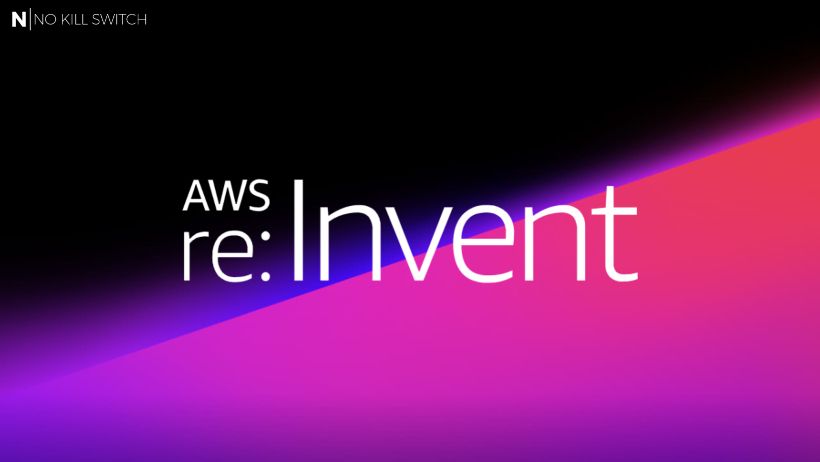Disclaimer: I am an AWS employee, but these are my private opinions. Based on my own perspective on the cloud landscape, competitive context, and what I find most valuable/interesting in the cloud services portfolios.
re:Invent 2021 is history.
But no worries, we're left with some exciting service announcements - that's what such conferences are for, right? I'm not going to cover all the novelties, just the ones I found particularly useful, with a lot of potential, or simply ... intriguing.
But before we get into the details. Looking holistically:
- Did we get any "game-changers"? Massive announcements with a potential to nearly immediately disrupt the market?
- Or maybe AWS has put their bets on quantity? And flooded the audience with an endless list of improvements and upgrades?
In fact, neither one nor the other. That shouldn't be much of a surprise:
- AWS is known for building services evolutionarily, using independent, single-threaded teams and driving product roadmaps with customers' feedback.
- AWS releases updates to their services nearly every day - their teams do not "stash" their changes before the big events: we had interesting announcements in a week before re:Invent, and we'll probably have some also in the week following it.
While the announcements are exciting the purpose of the conference is to gather up people who work in AWS and with AWS, to share the knowledge, mix the experiences, envigorate the community, and set a clear course for the next 12 months.
OK, what were my favorite announcements - what did I find particularly interesting and why:
- CDK v2 + Construct Hub : CDK is a super-ambitious project, and it simply can't fully succeed without community support. By "fully succeed", I mean going much further than providing low-level constructs or even open-sourcing them: the power of CDK is in building high-level abstractions based on proven patterns and design components. Construct Hub is simply an attempt to spur building such a community. The goal is definitely worth keeping the fingers crossed for.
- MSK Serverless : AWS already has a decent, serverless event stream engine (Kinesis), but ... Kafka is Kafka: OSS, with a huge community of contributors and a vibrant ecosystem of satellite projects. Now it'll be even easier to set up and scale - especially for irregular traffic cycles. That simply can't fail.
- DevOps Guru for RDS : This one probably deserves a separate blog post - an ML-powered advisory service to help you troubleshoot performance problems with your managed relational DBs. That's exactly how one should turn collected expert data (+ mature telemetry) into practical insights. I can't wait to check it out in practice.
- AWS Data Exchange for APIs : A marketplace for APIs - my only question is: WHY SO LATE? AWS has immense experience exposing products via reliable, billable, auditable APIs - it's definitely the expertise worth turning into an asset so that other parties can benefit from it.
- Over 30 new AWS Local Zones, incl. one in Poland : I think it's self-explainable :)
Putting my preferences aside, what are the announcements which will provide the most significant immediate value to companies running their workloads on AWS?
- Graviton 3 : A no-brainer. The next generation of AWS's ARM-based processor - more performant, cheaper, and pretty much a drop-in replacement for many typical workloads. AWS's substantial competitive edge over other cloud providers.
- re:Post : This will be either a great win or a spectacular fad - there's no middle ground. AWS tries to build its own StackOverflow equivalent, focused solely on AWS services. Its main advantage may be the direct participation of AWS employees, potentially incentivized by their employer (it's a speculation, I have no facts to back this up)
- Redshift Serverless : Finally, AWS deals with a serious service gap in its analytics offering: now it's possible to "start small" with a cloud data warehouse, w/o using a workaround (Athena+S3 or ... Postgres with star schema) or draining your wallet (for a full-fledged cluster you don't need YET)
- DynamoDB Standard-IA : applying the concept of the "Infrequent Access" tier (from S3) to DynamoDB seems like a clear win. Another low-hanging fruit: a substantial cost saving w/o any single change in your codebase.
- SageMaker Serverless Inference : AIML inference + serverless = match made in heaven? Quite possible, because of its elasticity and cost efficiency (you don't pay for idle inference endpoints).
There's one more announcement category I'd like to cover in this post: intriguing ones that either indicate some new & exciting direction, represent an interesting strategic trend, or simply open new opportunities.
- SageMaker Studio Lab : It's another visible effort to build a community - this time around AIML on AWS (primarily: SageMaker). A free, accessible environment to learn and experiment with machine learning hands-on - its success will depend on social aspects: collaboration features, community-created content (e.g., templates, samples), convenient ways to share what you've done, etc.
- AWS Mainframe Migration : Yes, you've read it right :) No, I'm not much into mainframes, but I find this announcement interesting because it's a good example of healthy collaboration with partners: AWS didn't build the service from scratch but utilized their experience (in what they are the best in). They've taken a partner's solution (MicroFocus) and turned it into a managed (automated, scalable, observable, etc.) service.
- SageMaker Canvas : Many have been propheteering AWS jumping on the No Code bandwagon, and here it is: a simplified AIML tool built for business analysts who work with data but have no coding skills. It's just a first step, but there's a very solid foundation (whole SageMaker suite) to be hidden under user-friendly abstractions :)
- Real-User Monitoring for Amazon CloudWatch + CloudWatch Evidently : Two substantial additions to CloudWatch. The first one may be a first step to providing a reasonable alternative to Google Analytics (this can have significant implications for building whole analytical pipelines for B2C and e-commerce platforms in particular). The second one can simplify building mature Continuous Delivery 100% on AWS - without using 3rd party services (for feature flags).
- Migration Hub Refactor Spaces : A service to help you with refactoring monolithic apps to microservices? Well, my initial reaction is skepticism (I strongly believe in the importance of starting with the functional decomposition) - but the idea is interesting enough to give it a try.
Very briefly - what did I hope for (but didn't get)?
- Some long-awaited announcements in the database department - especially around Aurora Serverless ...
- Introduction of a missing "virtual" entity that groups the resources that belong to a single workload (and, e.g., can be scrapped as one).
- More focus on Development Experience - e.g., deeper integration with popular OSS tools - think: managed Jenkins (yes, I know AWS has its CodeStar suite, but these are proprietary tools and do not have OSS community behind them, which is a severe handicap these days).
- Meaty update to AWS calculator - for instance: options, comparisons, RI/SP as an "overlay", filling the service gaps.
I guess it's time for a bit of summary:
I got (from the re:Invent) pretty much what I expected. A lot of long-term thinking. Evolutionary, customer feedback-based changes. Focus on community involvement, cooperation with OSS, partner collaboration with a colossal synergy potential. No flashy stuff with questionable applicability (who is this for?). No new services with an identity crisis (conflicting with the existing ones). I'm quite satisfied.
But for us, it's still Day 1.
Today, re:Invent is history.
It's Monday, BAU.
P.S. Some may find it surprising, that such topics like Private 5G or Amplify Studio aren't on any list. Well, these are my lists, so it's also my judgment ;)








